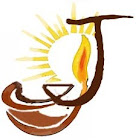From bad to worse
Monday, September 15, 2008
Deciding on getting the sal leaf work restarted, we analysed the previous method. We realised that this time we had to be pretty strict with those at the village and set things straight with work targets and the like.
Regarding the sal leaf production, we took few decisions (with the consent of the villagers):
- We also decided to shift from a pay per unit time basis to a pay per unit work basis, as there were people who worked slowly and this was creating discomfort amongst those who were faster at work.
- We decided on a differential pay system. The sewing part was difficult and people didnt want to do it. The moulding was easier. We needed to make the sewing part lucrative. We decided to give 70% of the profit margin per unit work to the sewing person and the rest 30% to the moulding person.
- Targets would be assigned after consulting the person themself, or in a way self imposed targets. Since they were having the freedom to choose the target, they had in a way, undertaken a personal obligation to fulfilling it and the target was not imposed or forced upon.
- Slots of work would be fixed and pre decided. This would avoid all conflicts regarding that issue.
- For once, the cooperative / money lending would stop and we decided to resume it once things got a little more on track.
Then, we realised that what we were considering as the difficult part was way easier than what was to come. The tough was yet to come!
The next step was to get the leaves and get them delivered at the village, so work would start. And, well.. there were no leaves. No leaves at all. Be it kharagpur, or gol b, or 30 km from kharagpur or kolkata! And, we had promised the villagers and given them all the tempo that work has to start as soon as possible.
The coming back.. and a new start
July came, and we returned to IIT Kharagpur from our long break. A meeting with Sharmaji told us that things were really not good, and that work had completely stopped. The raw material that was there was rotting. It seemed by his talks, that it will really be difficult to get them together and working again.
We all decided to get down to task and get things restarted. It was me, hakay, bania, pandey, pari and kanika who went down to the village. We went from one house to the other. Spoke to each one of them individually, and heard from them personally how they no longer wanted to work together with each other. There were issues reagarding work slotsWe learnt that they had shifted the equipment / machines from their home to a rented room near by.
Moreover, the cooperative that was there, and the money that they used to deposit each week had been stopped. The prime reason was that they felt that there money was just lying there, and might get squandered off. Also, once even a small amount got collected, they wanted it back as they now considered it an asset.
We were in no mood to let the thing fall apart. There were a few who still wanted to work and get thigns along in the village. We decided to work just with them for the time and worked on two path ways. One, immideate steps to be taken so that things get started. The sal leaf plate had to restart. Second, the sal leaf was a venture that would have been successful only if there was volume and that seemed difficult now with lesser man power - we needed something new.
Signs of concern
Sunday, September 14, 2008
The month of April was a big concern for us. May, June and July would be crucial months and very few of us would be here. We had to some way ensure that the work continued, even in our absence. We had to ensure that there motivation level doesn't fall.
Villages around IIT Kharagpur had a notion that these students come, and then they go for a 3 month vacation and never come back. We were not going to do that. Sharmaji, one of our foremost advisers, took on the responsibility during these three months. He ensured that he went to Ravindra Palli from time to time, and see that the work continues.
As May, June progressed, we became aware of how tough it was to keep these people knit together. We had over time, with our constant talks, ensured that they remained together. However, in our absence, the social differences became evidently visible. They had more or less stopped working. There were ego clashes. Initially, they gave odd reasons, of timings, blamed one another and complained of the machinery / equipment, lack of training; but on availability of these as well, the situation remained the same. Sharmaji took someone to train them more, so that work gets started as soon as possible. However, things made little progress.
We saw things that we term as practical problems on the field. We got a feeling as if their personal differences were so high, that they were ready to give up financial upliftment and live in the same conditions as now, but not get together. We realized as to how long these people had been living in such conditions that now they are accustomed to it, its there normal way of life.
